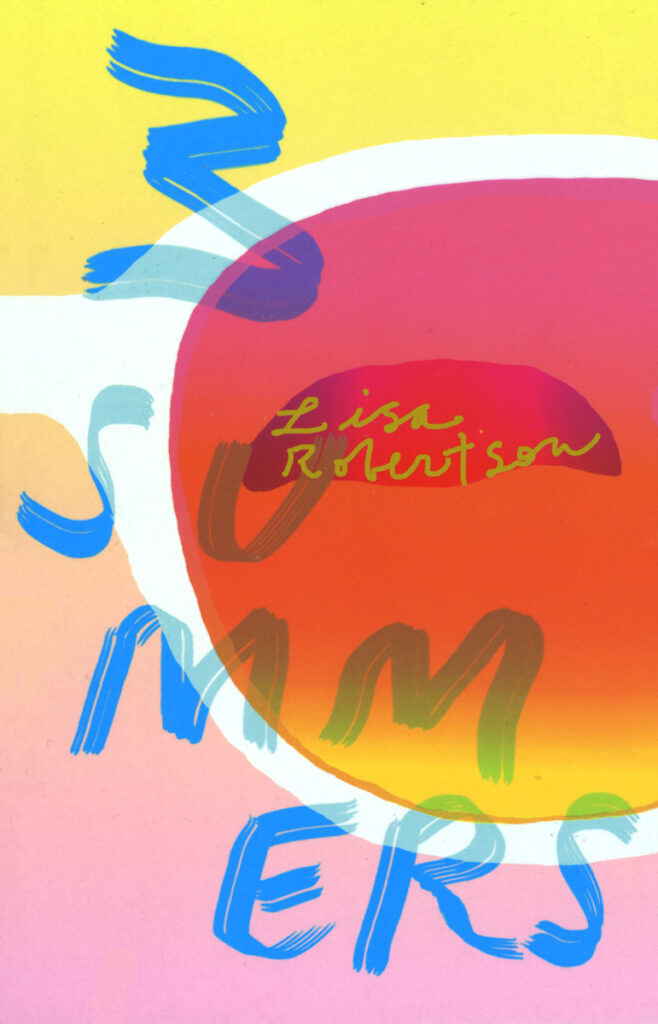Lisa Robertson: 3 Summers
Recite your poem to your aunt.
I threw myself to the ground.
Where were you in the night?
In a school among the pines.
What was the meaning of the dream?
Organs, hormones, toxins, lesions: what is a body? In ‘3 Summers’, Lisa Robertson takes up her earlier concerns with form and literary precedent, and turns toward the timeliness of embodiment. What is form’s time? Here the form of life called a poem speaks with the body’s mortality, its thickness, its play. The ten poem-sequences in 3 Summers inflect a history of textual voices – Lucretius, Marx, Aby Warburg, Deleuze, the Sogdian Sutras – in a lyricism that insists on analysis and revolt, as well as the pleasures of description. The poet explores the mysterious oddness of the body, its languor and persistence, to test how it shapes the materiality of thinking, which includes rivers and forests. But in these poems’ landscapes, the time of nature is inherently political. Now only time is wild, and only time – embodied here in Lisa Robertson’s forceful cadences – can tell.

